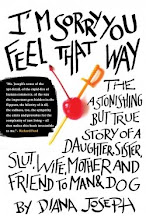I have become accustomed to editors rejecting my work. I don’t mind. I don’t blame them. Sometimes the work just isn't good enough. There’s always a better story or ten or a hundred ahead of mine in the queue. What I haven’t grasped yet is the wait to receive the rejection. Here’s why.
The longest wait I’ve had so far has been about three months (generic review X). The shortest wait I’ve had has been about twenty hours (generic magazine Y). It took generic review X three months to reject one story; generic magazine Y rejected not only that same story but a second one, with a personalized note for the second, in about twenty hours. Both journals are not among the littlest guys; each has been around a while, has a significant presence, and is accessible via such sites as Duotrope and the CLMP.
Among the easiest things in the world to do is to read the first dozen lines of a story from a slushpile, see that said story is (incomprehensible / syntactically sloppy / a first draft / hackneyed / insert various other flaws here), and reject it. A dozen manuscript lines might take about 30 seconds to read, another two seconds to sneer at, and another ten seconds to secure in the NO pile (or shunt to the NO folder in a database). Let’s say a story a minute. A determined editor who knows how to read and knows what a quality story looks like could eliminate fifty stories in an hour; one-hundred stories in two hours. (No excuses. It could be done.)
I know that generic magazine Y did read, in full, the second story that I submitted; the personal rejection letter proves it. Someone took a lot of time and energy to reject me very quickly, and made sure to let me know they did.
What are the discrepancies between one journal’s sloth and another journal’s celerity? Some requirement to read the entire body of each story? Quotas? The use of graduate student labor? Volunteerism? Intrajournal politics and disagreement? Can anyone explain this, or am I pondering something entirely disagreeable that no human being should ever think about?
Subscribe to:
Post Comments (Atom)
A Slowly Growing List of Things to Look Forward To When You Have a Child
- Every day is either Christmas or Halloween or Birthday or Easter
- Leave those cats alone! They're going to scratch you and it will hurt
- You cannot lie under circumstances, but nor can you tell the literal truth
- Geez that kid is sharp
- Can I have cake? Can I have cake? Can I have cake? Huh? Daddy? Can I have cake?
- For the last time, stop asking me!
- Noticing the growth: taller and a bit heavier to carry
- Children's television shows
- Food. Wasted food
- Remembering that you once acted this way yourself
- Watching where the both of you are going
- The joy of hearing the word "fuck" being used experimentally, and justifying this experimentation by saying "Well they learn it eventually"
- TANTRUMS
- Sitting down together on the living room floor, a mess of blocks & cars & plush Care Bears strewn around you, discussing the complexities of each car's identity, its name, and why it is so humorous
- Having to take responsibility for someone else for a change
- More frustration than you're prepared for
- Wicked cackling
- Drawings of potato guys
- Learning about the world all over again
- Circular Logic
- Unexpected hugs and words put beautifully together out of context
- Waking up after 4 hours of sleep, and unexpectedly having to confront shit, in more than one place, including the carpet, a big toe, a butt, a bed, a toilet seat, and underpants




2 comments:
There are a lot of reasons it could take a while to return notice on a piece.
Magazines often have different reading procedures. Some of them have several readers take a look at a piece of work before rejecting it. Some have smaller staffs, and they have one person reading, and it takes them a while. Sometimes, it doesn't. Some have you submit online, some have you submit via mail, some do both, and that usually makes a difference. Some don't read during the summer. Some get together to discuss work once a month.
Sometimes, you might make it through a round of first readers before being rejected by a second round. This could create an extended wait. Sometimes, you could be on the verge of a very final cut. This could take even longer.
Magazines out of schools can often take longer, because they rely on part-time unpaid volunteer effort to get the submissions read. Sometimes, if the magazine is not run out of a school, it can take a while because the staff is made up of part-time unpaid volunteers who have another full-time job.
Some magazines have a policy, where they decide a quick decision is made within a week. Sometimes, a magazine will decide a quick decision is 3 months.
It seriously could be any number of things.
Yeah. What Ande said. I usually take it as a plus when a piece takes a while to get rejected. Usually means that they spent some time with it. Or it could mean that it just got buried in their piles. And if the magazine is an established magazine, they probably get a lot of submissions. So you could vary easily arrive with 200+ submissions in front of you.
Most magazines these days are run by part time folks. They have other things to do, too. Not that they don't put in 110%, but they've got to work and feed themselves and can only read so much in one day. The absolute maximum I'd put up with for a wait is 6 - 8 months (depending on the magazine).
And usually online places will get back to you a lot quicker because their submissions go directly to the editor to read it. It doesn't have to go through the mail, then sorting, then piled. And I've found that I'm more prone to reading and considering longer if it's a paper submission just because there's more physical effort required. With online, I can quickly click reject and move on.
Post a Comment